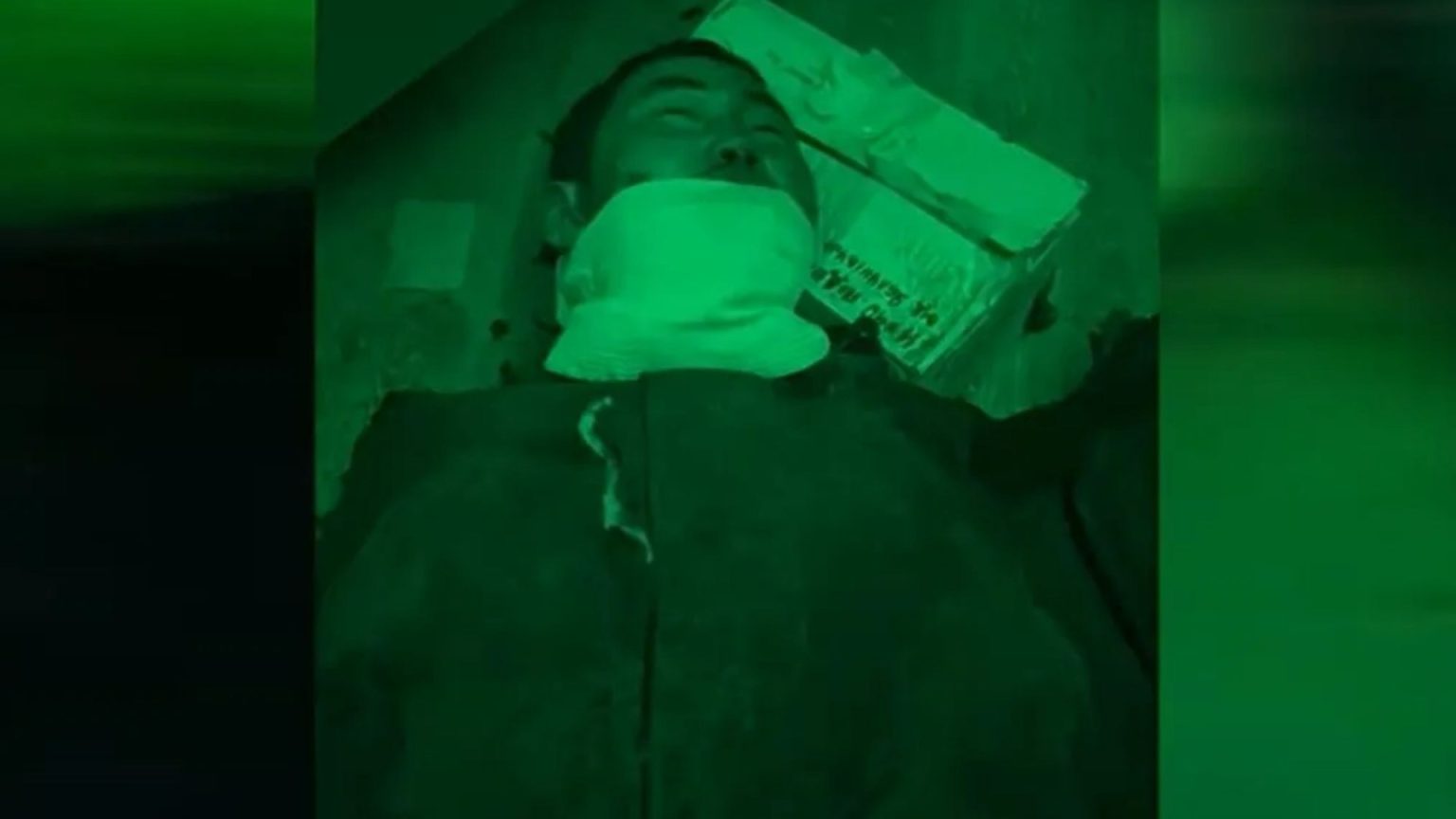The ongoing conflict in Ukraine has taken a surprising turn with the capture of two North Korean soldiers fighting alongside Russian forces. The capture, confirmed by Ukrainian President Volodymyr Zelensky, underscores the internationalization of the conflict and the lengths to which Russia has gone to bolster its depleted ranks. The incident, which unfolded in the snow-covered Kursk region, highlighted the desperate conditions faced by these foreign fighters. One soldier, found injured and clinging to a sausage, refused to relinquish his meager meal even when confronted by Ukrainian special forces. His comrade, overwhelmed by the situation, attempted suicide by running into a concrete pillar. This stark illustration of desperation paints a grim picture of the realities on the ground for some of the foreign combatants involved in the war.
The Ukrainian paratroopers who captured the North Korean soldiers described the incident in detail, emphasizing the soldiers’ apparent lack of preparedness and training for the harsh conditions and realities of the conflict. The soldier’s refusal to drop the sausage, a small act of defiance in the face of capture, underscored the dire circumstances he faced. The suicide attempt by the other soldier further emphasized the psychological toll of the war and the precarious position of foreign fighters deployed to the front lines. The soldiers’ subsequent request to watch Korean romance films, after receiving medical attention and food, speaks to a longing for home and a stark contrast to the brutal reality of their situation.
The capture of these two North Korean soldiers marks a significant development in the war, as it’s believed to be the first instance of North Korean troops being taken alive by Ukrainian forces. North Korean soldiers are notorious for their resistance to capture, often choosing suicide over surrender. This is likely due to the severe repercussions they could face if repatriated, including imprisonment or execution. The incident also sheds light on Russia’s recruitment of foreign fighters, a strategy born out of necessity due to significant losses in its own ranks. The deployment of North Korean troops, often ill-equipped and unfamiliar with the terrain, has raised concerns about their treatment and effectiveness in combat. Reports suggest they are being used as “cannon fodder,” sent to the front lines with minimal training and support.
The Ukrainian forces’ account of the capture provided further insights into the tactics and conditions of the North Korean troops. They described them as lacking in strategic approach, relying on sheer numbers rather than tactical prowess. This echoes previous reports suggesting that North Korean soldiers are often used in human wave attacks, a tactic that results in high casualties. Their outdated equipment and lack of familiarity with the battlefield further contribute to their vulnerability. The Ukrainian soldiers also contrasted the North Koreans’ fighting style with that of the Soviet army, highlighting the reliance on outdated methods and a reluctance to retreat even in the face of overwhelming odds.
Beyond the immediate circumstances of the capture, this incident has broader implications for the ongoing conflict. The presence of North Korean troops highlights the extent to which Russia is relying on foreign support to sustain its war effort. It also raises questions about the motivations of North Korea, which is believed to be receiving much-needed resources and potentially military technology in exchange for its soldiers. The deployment of thousands of North Korean troops to Ukraine further complicates the already complex geopolitical landscape of the war, adding another layer of international involvement.
Finally, the accounts of former North Korean soldiers offer a chilling perspective on the plight of these deployed troops. They describe soldiers who are often young, poorly trained, and motivated more by coercion than ideology. They are reportedly treated poorly by their Russian counterparts, used as expendable “human shields,” and face severe consequences if they attempt to defect or surrender. These accounts underscore the human cost of the war, particularly for those forced into combat far from their homes and under extremely challenging conditions. The desperation exhibited by the captured soldiers, clinging to a sausage and attempting suicide, serves as a stark reminder of the brutal realities faced by those caught in the crossfire of this ongoing conflict.




